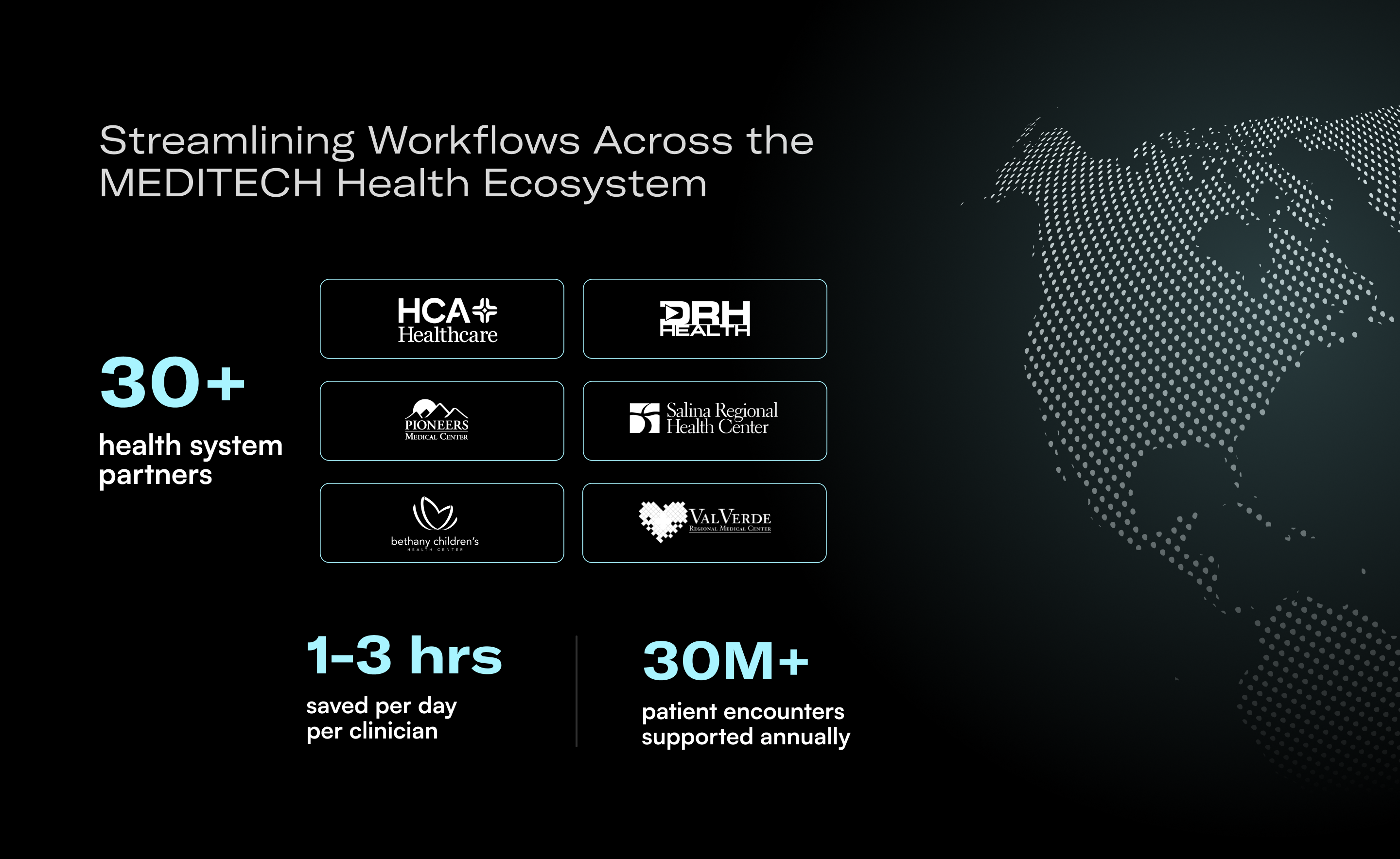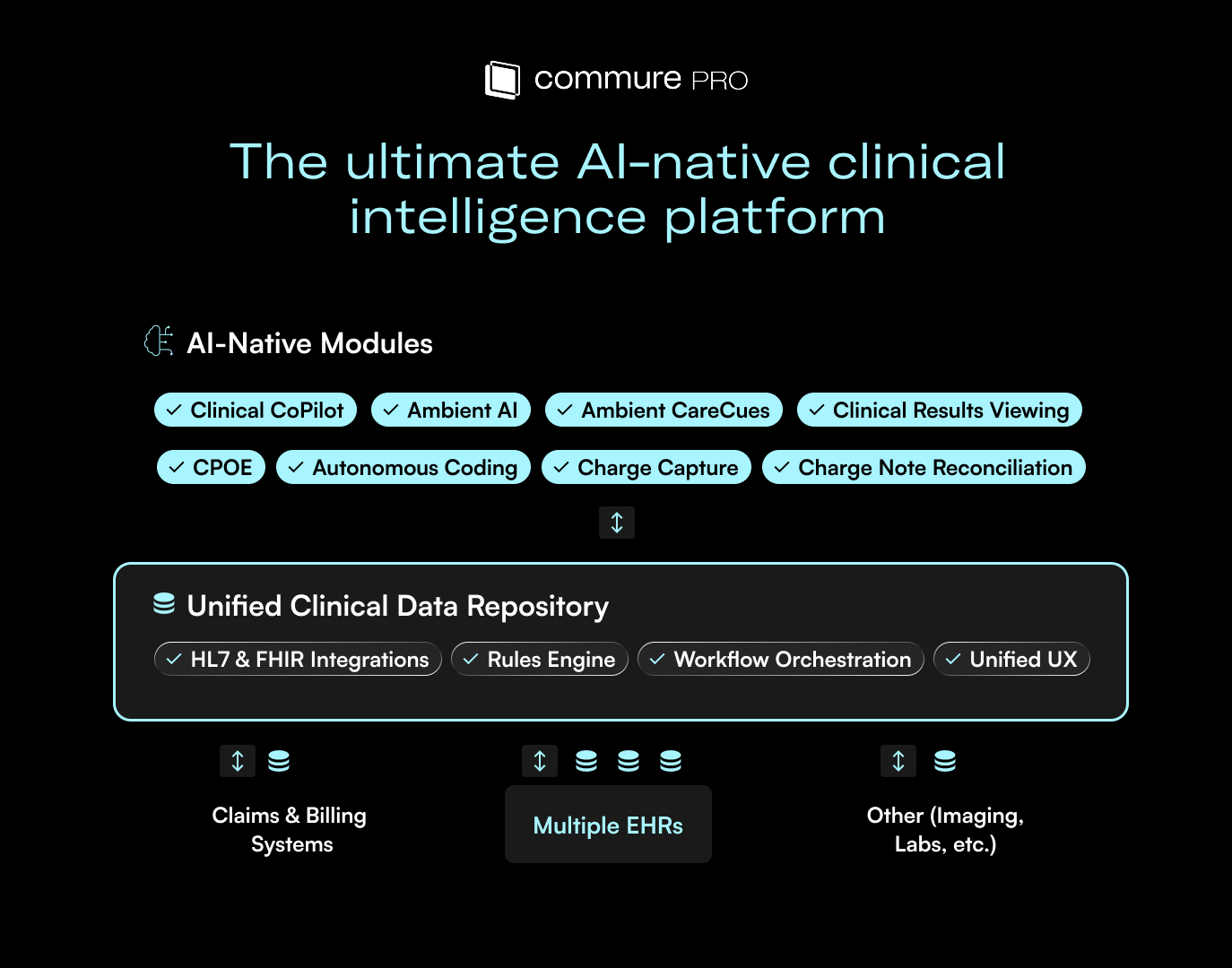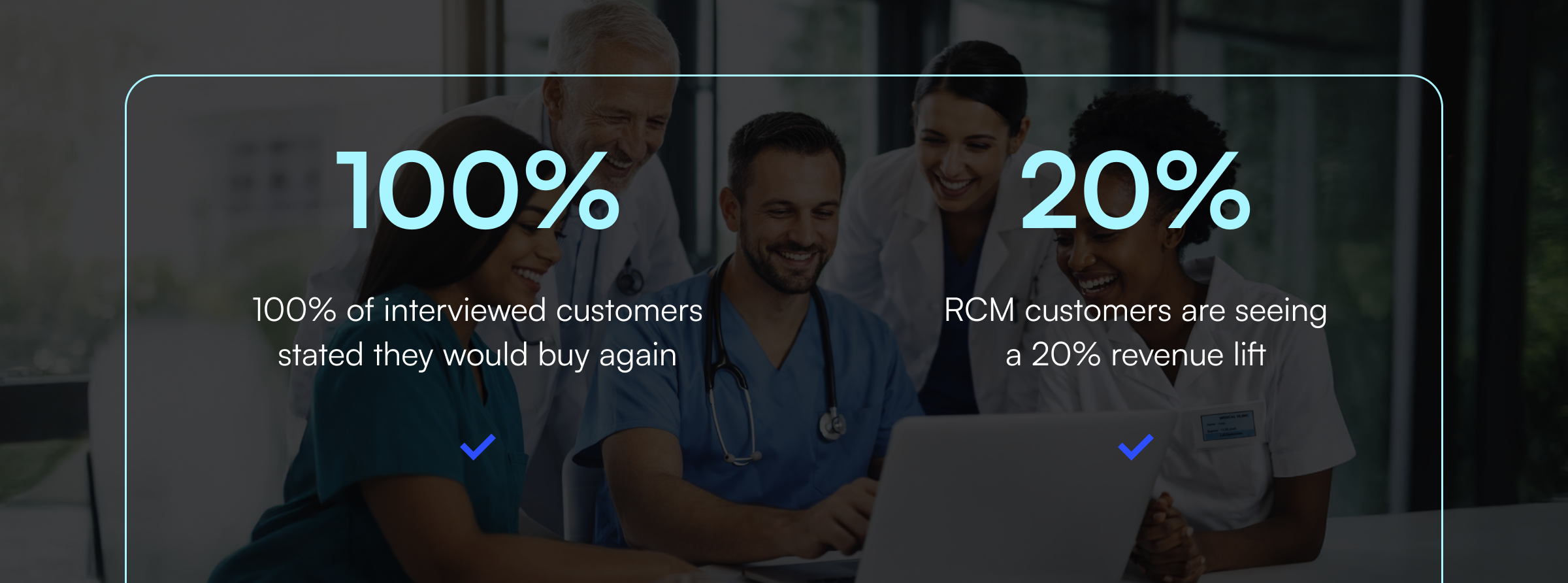Interest in healthcare AI is growing fast. NVIDIA’s 2025 State of AI in Healthcare and Life Sciences survey found that 63% of respondents (more than 600 healthcare professionals spanning medical technology/tools, digital healthcare, pharmaceutical, payers, and providers) are actively using AI and 81% say it has helped increase revenue at their organization.
As innovative health systems and practices across the country are implementing AI solutions to streamline their workflows, some patients and care teams remain hesitant. The caution makes sense. Questions about safety, transparency, and reliability are valid in an industry where there’s little margin for error.
It’s up to healthcare leaders and technology providers to bridge that gap. Building trust in AI means understanding the concerns behind the skepticism and addressing them directly.
Common AI-Related Concerns Among Patients and Providers
- Privacy and security: Patients and providers worry about data misuse or breaches. In one survey, 63% of patients and 87% of physicians flagged privacy as a top concern.
- Transparency: AI systems often lack clarity around how decisions are made, raising fears of hidden bias or errors.
- Accuracy: Misinterpretations can have serious consequences, especially when AI is used in diagnosis or treatment planning.
- Job security: Some clinicians see AI as a threat to their roles, which can slow adoption and fuel skepticism.
- Education gaps: Many users don’t fully understand what AI can and can’t do, making trust harder to build.
Turning AI Skepticism into Confidence
Patients and providers have valid concerns about AI in healthcare. But when implemented responsibly, AI can free up clinical time, reduce administrative burden, and improve the consistency of patient communication. For healthcare leaders, building trust starts with selecting the right solutions and creating clear strategies to earn buy-in across the organization.
Choose AI Tools With Safety at the Core
AI in healthcare takes many forms. Some tools generate responses from training data, while others rely on preset clinical content. Large language models are now capable of generating responses to a wide range of inputs and can even perform tasks such as data entry. However, AI models can also provide inaccurate responses. Grounding these models in clinical data, clinical guidelines, and scientific evidence helps to ensure that answers will be on-target. Furthermore, some AI systems also include safeguards that include continuous monitoring of model performance to minimize that risk.
For health systems, trust begins with choosing technology that’s designed for safety. Leaders should evaluate how each system works, what information it relies on, and how it supports clinical oversight. Those decisions help ensure the tool strengthens care while minimizing risk.
Know the Source of Your AI’s Data
AI is only as good as the data behind it. When inputs are flawed, outputs follow suit. Inaccuracies, hallucinations, and outdated information have already cost organizations across industries. In healthcare, these risks are even more pronounced as they carry both a financial risk and are tied to patient trust. One Medscape survey found 88% of physicians worry about generative AI delivering inaccurate health guidance. Meanwhile, a Salesforce survey found 63% of patients share concerns about compromised or misleading information.
That’s why healthcare leaders must evaluate where an AI platform’s information comes from and how it’s maintained. Commure’s patient experience solution, Commure Engage is built on a clinician-curated content database developed with ongoing input from health systems. This ensures guidance reflects current practice and stays within defined clinical boundaries, giving patients reliable support and keeping care teams in control.
Equip Your Teams With Clarity and Confidence
Uncertainty about job loss are common when new technologies are introduced, with 65% of physicians reporting concerns about AI making diagnosis and treatment decisions. But in healthcare, most AI tools are designed to streamline administrative tasks, not replace clinical judgment. Charting, patient follow-up, and care coordination are just a few examples of workflows AI can help simplify, giving staff more time to focus on patients.
Leaders play a key role in shaping how these tools are received. Clear communication about what AI can and can’t do helps reduce fear and misinformation. Staff should know how AI will be monitored, how it fits into care delivery, and how to raise concerns. With the right education, teams are more likely to adopt these tools with confidence and use them effectively.
Look for a Technology Partner with a Clear Responsibility Framework
Responsible AI begins with clear values. As developers adapt to a shifting ethical landscape, they should be able to show how their platforms are built with safety and accountability in mind. When evaluating vendors, ask whether their principles are designed specifically for healthcare and whether they’re embedded in the product, not just marketing.
At Commure, our framework focuses on:
- Safety and reliability: Built to perform as intended, with safeguards in place from the start.
- Human oversight: Designed to keep clinicians in control, with transparent review and feedback loops.
- Equity and fairness: Developed to reduce bias and expand access, especially for underserved groups.
- Privacy and security: Structured to meet HIPAA standards and protect patient data at every level.
Trust Drives Impact
AI has the potential to reshape how care is delivered. But its value depends on trust. For platforms to succeed, patients and care teams need to know the technology is safe, reliable, and thoughtfully designed. That trust is built when developers listen to users, address real concerns, and ensure every solution reflects the needs of the people it serves.
Ready to see why Commure Engage is trusted by both patients and providers?











.avif)

.png)



